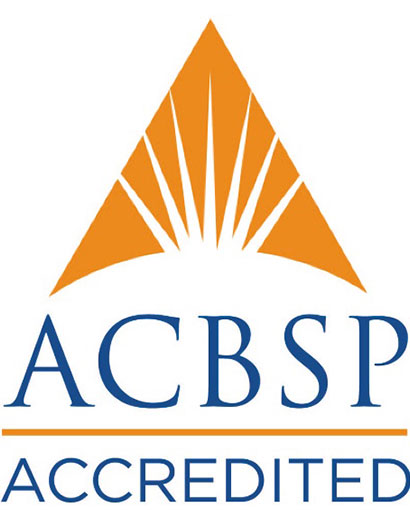Program Structure
The online MBA curriculum is 48 credits total. Each of the 12 courses is comprised of 10 weekly modules, which are structured asynchronously, with regular deadlines for assignments and projects. The program, which does not require any live sessions, can be completed in as little as 18 months while you work.
Coursework
Students participate in weekly discussion forums and complete assignments that deepen their understanding of the material. This format allows students to work at their own pace while they interact with their peers. Throughout the program, students will have regular access to our faculty online.
In addition to weekly activities, each course includes a quarterly project that allows students to comprehensively apply their learning. Course activities are diverse, encompassing written work, video presentations, and occasional team-based assignments and projects. Course assignments can often be tailored to students’ organizations and positions.
Curriculum
48 Credit Hours Required
This course is designed to provide students with graduate skills they will need in many of the other MBA courses and workplace situations. This course will focus on critical issues for graduate-level students. Emphasis will be placed on orienting students to UNOH and addressing writing techniques, informational technology resources, critical analytical thinking, and case analysis methodology. The course will also address additional outcomes required for graduate school success. Prerequisite: Must be taken first quarter.
This course examines the legal and ethical environments that organizations and managers face and how these environments impact business. Course topics include privacy and technology, government regulation in the workplace, valuing diversity, environmental protection, marketing legalities, product liability, and intellectual property.
Alternative internal financial information such as variable costing, activity-based costing and cost-volume-profit analysis are calculated and analyzed as tools to improve organizational decision-making. Various types of cost, profit planning, flexible budgets, and performance measurements will also be covered as tools to run the business.
Students will study organizations and the critical elements required for their success, to include individuals, groups, and the organizational systems. Specific emphasis items include individual behavior and attitudes, teamwork, and the impact of change on today’s global organizations. Students will explore the relatively young history of organizational behavior and analyze its interrelationship with other fields of study, such as psychology, sociology, etc. In addition, students will analyze the successes and failures of current global organizations and propose effective strategies for change.
This course will investigate the major themes in international business today. The main emphasis will be on the four major subject areas of global business issues and strategies which include management, economics, political science and strategy. This course will provide a truly global perspective by exposing the student to cultural diversity for both the practitioner and the scholar.
This course focuses on how financial decisions made by managers affect the value of the organization. These decisions are broken down into financing and appropriate investments in working capital, analyzing capital budgeting projects, and determining the optimal capital structure. In addition, the effect on the financial markets and the firm’s financial condition on these decisions are included.
This course examines the role of the marketing function for both consumer and business markets. Relevant theory and practice are discussed in relation to principles, analysis, and planning for developing and implementing marketing strategies.
This course addresses best practices that give organizations competitive advantage. This includes attracting, developing, and retaining talent, designing compensation and performance management systems that motivate performance, and practicing evidence-based decision-making. The legal, financial, and ethical implications of employment actions are discussed.
Probability, as it pertains to decision theory, regression analysis, and forecasting, is studied to make objective business decisions in the face of uncertainty. Linear programming, within the context of establishing and analyzing a business model, will be studied, with a specific focus on how a business can optimize the resources available. This will help to establish analytical techniques for inventory control, project management, queuing theory, network modeling, and transportation, which improve the efficiency of most business organizations. The software POM-QM for Windows is used throughout the course.
This course serves as an introduction to applied leadership. It will focus on the historical origins of leadership as well as the contemporary approaches used in today’s global society. In this course students acquire knowledge of and apply effective leadership practices as they work to understand their own personal leadership style. In doing so, they will analyze their own leadership strengths, weaknesses, and areas for improvement. Additionally, students will be assessing various leadership styles of prominent leaders, both past and present.
This course applies economic theory and methods to business and administrative decision-making and tells managers how decisions should be analyzed to achieve organizational objectives efficiently, also helps managers recognize how macroeconomic forces affect organizations and describes the economic consequences of managerial behavior. Special attention is paid to the operation of the firm in a global economy.
This course is designed to be a capstone course for the MBA program. Students will have the chance to analyze, synthesize, and evaluate theories, terms, and concepts discussed in other MBA courses through the use of a simulated business environment program. This course is designed to be an information application course. Prerequisite: Must be taken last quarter.
Get Started Now
To learn more about one of the most affordable and convenient online MBA programs in Ohio and download a free brochure, fill out the fields below. You can also call (419) 597-5632 to speak to one of our enrollment specialists about our online MBA program.




